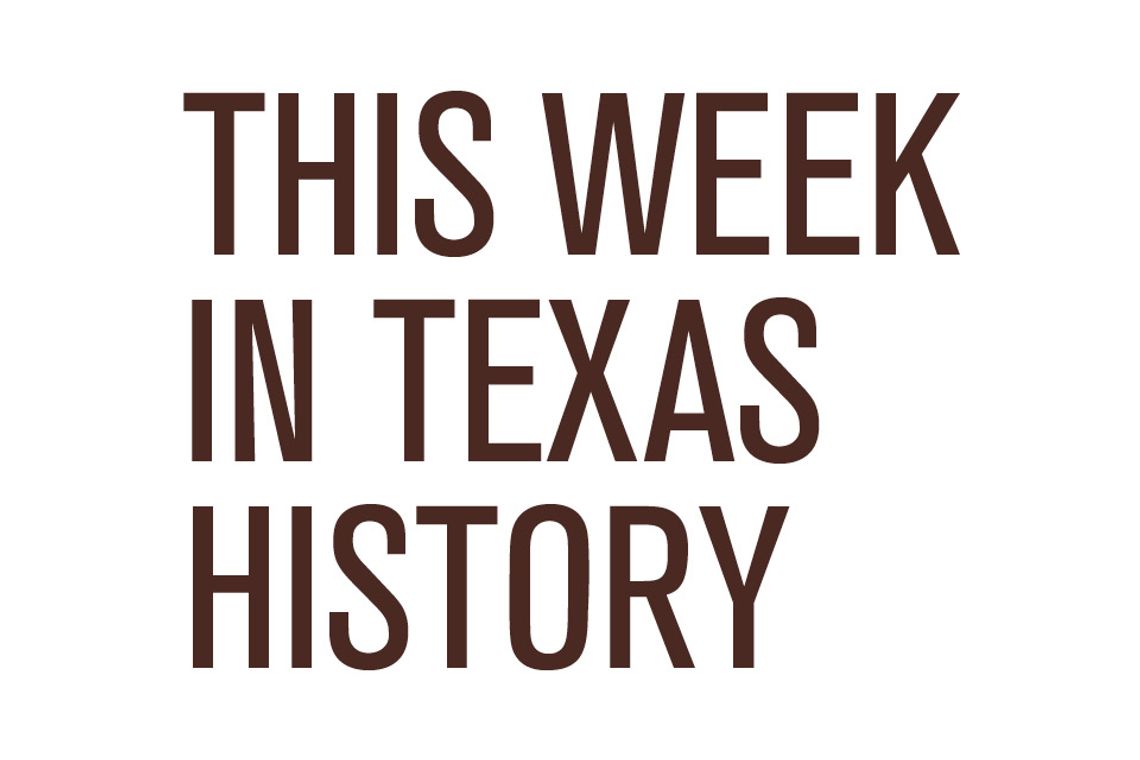As voters in ten Texas counties went to the polls on April 10, 1937 to pick a new congressman, the youngest candidate on the ballot spent the day in a hospital bed.
After working his way through college at San Marcos and teaching school in Houston, Lyndon Baines Johnson joined the staff of Rep. Richard Kleberg. Three years later, he returned to the Lone Star State as administrator of the National Youth Administration, a New Deal Program.
Although eager to launch his own elective career, Johnson refused to start at the bottom with a local or state office. The ambitious bureaucrat would settle for nothing less than a seat in the United States House of Representatives, which invincible incumbents in one-party Texas usually held for life.
The sudden death of Rep. James P. Buchanan in February 1937 opened the door but only a crack. By leaving his name off the list of possible replacements, the Austin Statesman gave Johnson credit for showing good sense. A 28 year old unknown from the smallest county in the Tenth Congressional District would have to be crazy to challenge the political heavyweights sure to seek the post.
As Alvin Wirtz listened to Johnson make his case for entering the race, he realized it would be a waste of time and breath to tell him to wait his turn. The former lawmaker and veteran lobbyist offered his assistance and a piece of advice. For the underdog to have even a ghost of chance, he had to turn the election into a referendum on the New Deal.
Money was no problem. Wirtz put the bite on a few corporate contributors, who gave generously to the long-shot campaign, and Johnson’s wealthy father-in-law kicked in another ten grand.
Acknowledging the unwritten right of the widow to take her dead husband’s place, the other contestants graciously deferred to Mrs. Buchanan and refrained from declaring their intentions. But Johnson knocked her out of the race by announcing his candidacy on March 1 and informing the press that he would step aside for no one.
Johnson hit the ground running the very next morning. With seven weeks until the winner-take-all special election on Apr. 10, he had to make every day count.
That was how the novice got the jump on the complacent competition. C.N. Avery, Buchanan’s campaign manager and presumed successor, kicked off his low-key bid a week later. Assistant attorney general Merton Harris finally got into the act on Mar. 18, while state senator Houghton Brownlee waited until the legislature adjourned on the 27th.
Conceding Austin and a third of the electorate to Avery, the early favorite, Johnson concentrated on the countryside. From daylight until well after dark, he canvassed the small towns and crossroads stopping to shake hands and politick at every general store and gas station along the way.
A poor public speaker in a formal setting, Johnson came to life in one-on-one electioneering. His folksy style and amazing ability to connect names with faces transformed strangers into lifelong admirers.
Rattling along back roads hardly more than wagon trails, Johnson would order his driver to stop for no apparent reason. He would then scale a barbed-wire fence and tromp through ankle-deep mud to solicit the support of a single startled farmer.
Johnson’s standard stump speech in 1937 was simple and powerful. “The eyes of the nation are on us right here. The whole country’s watching what you do on April 10. This is the first and only test at the polls in all of the United States of the President’s program.”
In other words, a vote for Lyndon Johnson was a vote for Franklin Roosevelt. And by casting that vote, humble Texans had the opportunity to shape history.
Nevertheless, as late as Mar. 25, LBJ trailed badly in the newspaper opinion polls. The surveys showed Avery comfortably ahead of the pack with Johnson no better than a distant third.
The surprise endorsement of Albert Sidney Burleson made a dramatic difference. The former congressman and postmaster general in the Wilson administration turned Johnson’s youth into an asset when he said, “To elect an old man is for the people to throw the office away.”
Digging deep into his $100,000 war chest, Johnson saturated the airwaves with 15-minute commercials. Politicians that had previously shied away from speaking on his behalf jumped at the chance to read rousing testimonials on the radio.
Thirty-six hours before the polls opened, Johnson was rushed to an Austin hospital with an acute case of appendicitis. On Election Day, the recovering candidate was confined to bed.
While less than a third of the electorate preferred the brash upstart, the best any of his opponents could do was a meager 18 percent. Lyndon Johnson had pulled off a miracle and started his historic rise to power in Washington.
Bartee welcomes your comments and questions at [email protected] or P.O. Box 130011, Spring, TX 77393 and invites you to visit his web site barteehaile.com.










